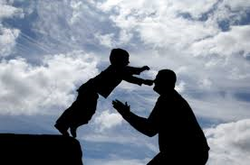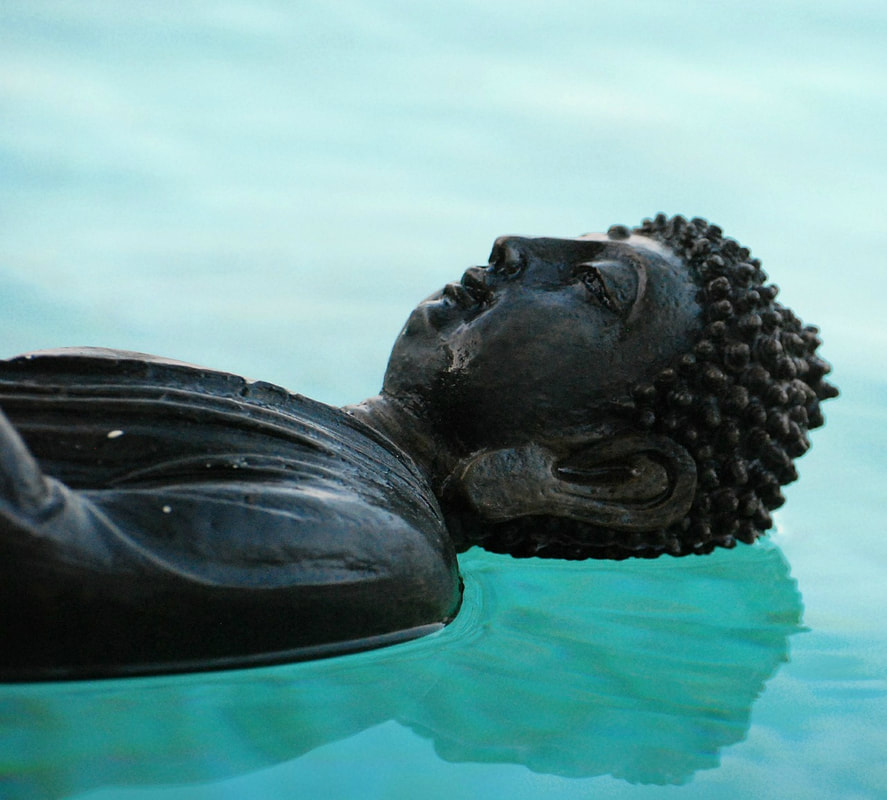 What in the world does yoga have to do with trust?! It is an interesting result of our practice when we find that our self-trust grows as a result of time spent on the mat. Remember the first time you were introduced to headstand in a class? Did your mind instantly freak out in fear?! Probably so and then a variety of things could have happened: you stayed in a highly reactive fear mode and tried the pose, you stayed in this highly reactive fear mode and did not try the pose, you rationally tried to calm the mind from its fight or flight stance and tried the pose, or you did not try the pose or you tried prepping for it, in other words, did part of the pose, OR you tried the pose, fell out and then chastized yourself for trying it in the first place because you just knew you couldn't do it. Any of his sound about right? (Think I covered every option!) At some point, we trust ourselves enough on the mat to try a pose or not based on our self-knowledge, self-trust and ahimsa (non-harming to the body). Fear no longer plays a part because we have our best interest at heart. Having said that, inversions come with an element of fear if you have not tried them. But, if you trust yourself and you trust your yoga instructor, and there isn't a physical reason you should not try the pose, I would encourage you to set fear aside. I love it when someone tells me they can't do a headstand because they have never done one or they are too old, and then we work through it on the mat and they get in headstand...they are so proud and excited when they finally come back down! But headstand is just an example. Tthis theme is not about sirasana; it is about trusting your inner Self. "Self-trust means we have the confidence necessary to follow through and pursue things that feel right... self-trust is the most intimate way of expressing your trust in God and the universe. You are not a separate creation, remember, and you did not create yourself. Trusting yourself, therefore, is actually trusting in the intelligence of the Creator who made you. It is your personal demonstration of your trust in the universe and Infinite Mind, and your confidence will be well reinforced because of your ever-increasing sensitivity. This basic self-trust is the foundation of all yoga and the prevailing quality of those who have learned to be their own best teachers." Eric Schiffman The Yoga Sutras refer to the five kleshas (obstacles of the mind) that perpetually get in our way. Should we overcome them, we become exposed, introduced, to our true nature. The five kleshas are: Avidya – Ignorance based on misrepresentation of reality (maya); a disconnect from truth Asmita – This is associating ourselves with our egos Raga – Attachment to desire Dwesha – Aversion to unpleasantness (this what causes us to react to difficult poses like headstand) Abhinivesha – The fear of dying better described as "clinging ignorantly to life" (that puts a different spin on it, doesn't it?!) We cling to life for fear of loss; our attachment to what we know...raga When we overcome these obstacles and meet our true selves, how could there be anything but self-trust? We have let go of our labels so we no longer have to question their truth. Self trust extends to an enriched trust of others. Maya Angelou writes, " I do not trust people who don't love themselves and yet tell me, "I love you." There is an African saying which is: Be careful when a naked person offers you a shirt." I found this last analogy online. I think this sums up what I have been rambling on about in a concise way. "Trust is when you throw a baby into the air and she laughs because she trusts you will catch her." Yoga is only partially about physical flexibility and strength. What yoga does for you mentally, spiritually and emotionally can only be experienced by you. So, I'm just saying, if you do not have that amount of trust in yourself, come to your yoga mat more.
0 Comments
Leave a Reply. |
Archives
March 2024
|

 RSS Feed
RSS Feed